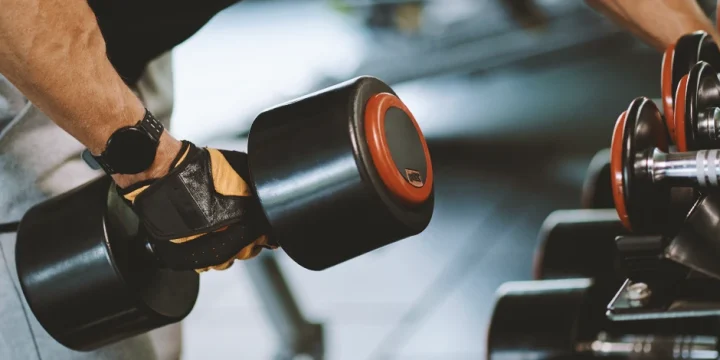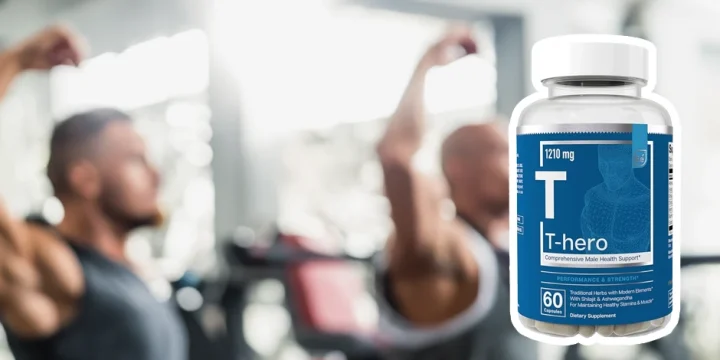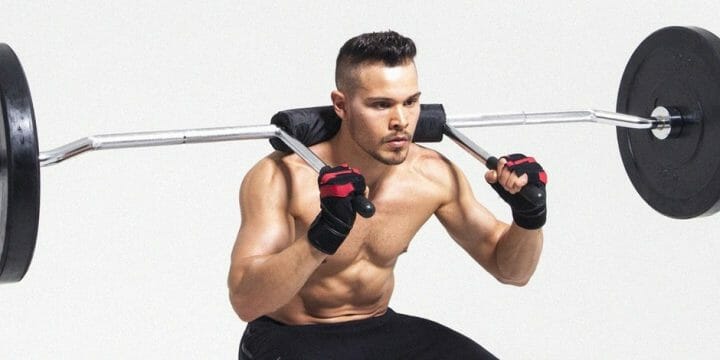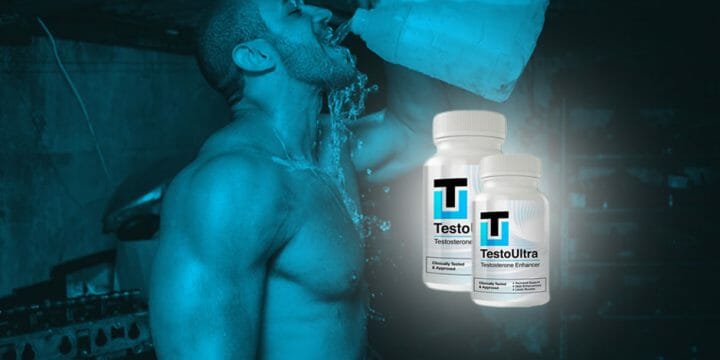Low testosterone can lead to irritability, reduced sex drive, and less muscle mass, even in healthy men.
Many of my fitness clients, despite their efforts, struggle with these symptoms.
This article, based on my extensive research, explores the impact of low testosterone on men's health and examines the role of testosterone boosters, including their benefits and risks.
Quick Summary
- Testosterone boosters are supplements designed to naturally increase testosterone levels, muscle mass, and sex drive in men.
- These supplements typically contain natural ingredients like zinc, D-aspartic acid, magnesium, and vitamin D, which aid in testosterone production.
- A study published in PubMed indicates that long-term stress can significantly elevate cortisol levels, leading to a rapid decrease in testosterone levels.
- In my opinion, combining testosterone boosters with a healthy lifestyle can significantly improve men's overall well-being and fitness.
What Is a Testosterone Booster?
A testosterone booster is a supplement sold over the counter and advertised as helping men increase testosterone levels, gain muscle mass, and improve their sex drive.
From my coaching experience, I've seen testosterone boosters help men increase their testosterone levels, muscle mass, and sex drive effectively.
They are designed to stimulate natural testosterone production with many natural compounds like vitamins, minerals, herbs, and extracts.
The Food and Drug Administration (FDA) does not oversee the regulation of over-the-counter supplements, leading to a notable difference in the level of examination and evaluation these products undergo compared to pharmaceutical drugs.
While the physical effects of testosterone boosters are widely discussed, it's equally important to consider their impact on mental health, including potential mood swings and changes in psychological well-being, which are often overlooked in mainstream discussions.
Testosterone Booster Ingredients

Testosterone supplements offer organic ingredients to aid the body’s natural testosterone production. In my experience, ingredients like D-aspartic acid and zinc in testosterone supplements have significantly aided my clients' natural testosterone production.
Unlike anabolic steroids, which are synthetic derivatives of testosterone and often associated with a range of legal and health issues, testosterone boosters are typically marketed as natural alternatives, but it's crucial to understand their different compositions and effects on the body.
Commonly found ingredients include:
- D-aspartic acid: A natural amino acid that may increase levels of luteinizing hormone, which prompts the body to release more testosterone, according to the Journal of Human Reproductive Sciences [1].
- Vitamin D: Studies show differing conclusions regarding the value of vitamin D related to increasing testosterone levels, but it remains a common supplement ingredient [2] [3].
- Zinc: Research published in PubMed has shown a direct link to zinc deficiency and low testosterone levels [4].
- Magnesium: An essential mineral in the body that has proven to have an impact on both total and free testosterone levels [5].
Ongoing research evaluates the efficacy of herbal ingredients like ashwagandha root, turmeric, fenugreek seed, and Tribulus Terrestris as testosterone boosters [6].
Also Read: What Vitamins Will Increase Testosterone
How Do They Compare to Testosterone Replacement Therapy (TRT)
Testosterone replacement therapy, also called androgen replacement therapy or hormone replacement therapy, is FDA approved and can effectively treat testosterone deficiency caused by hypogonadism. Both testosterone boosters and TRT are designed to address the same underlying issue of low testosterone.
Comparing my clients' experiences, FDA-approved testosterone replacement therapy has been effective for those with hypogonadism, while others found success with testosterone boosters.
Many of the top-rated online TRT clinics offer comprehensive guidance on these treatments.
These virtual clinics have revolutionized the accessibility and convenience of testosterone replacement therapy. By opting for remote TRT clinics, individuals can receive comprehensive care, including diagnosis, prescription, and ongoing monitoring, all from their homes.
This innovative approach ensures that you can address your low T levels effectively and conveniently with the support of qualified medical professionals.
According to the Translational Andrology and Urology, testosterone therapy is currently available as [7]:
- Topical: a testosterone gel that provides easy application through skin.
- Transdermal: a testosterone patch applied daily which can cause skin irritation in some instances.
- Intramuscular: testosterone injection in the muscle requiring less frequent dosage administration. It is also known to cause skin irritation and pain at the injection site.
- Subcutaneous: under-the-skin injection considered a better-tolerated alternative to intramuscular [8] [9].
- Subdermal Implants: testosterone pellets surgically implanted a few times a year remove the need for daily application or bi-weekly injections, according to the Current Sexual Health Reports [10].
What Affects Testosterone?
There is no shortage of reasons for the increased risk of low testosterone levels, some more manageable than others [11].
Through my coaching, I've observed various factors like stress and obesity significantly affecting testosterone levels in men.
These include:
- Medications: including chemotherapy, steroids, and opioids
- Pituitary gland disorders
- Obesity
- Liver damage
- Stress levels
- Extreme weight loss
- Hypothyroidism
What You Need to Know About These Products

There are potential benefits and risks to consider when you are seeking advice, diagnosis, or treatment of the following items related to low testosterone:
- General sexual function: including erectile dysfunction or decreased sex drive
- Body composition: increasing muscle growth and lean muscle mass, or decreasing body fat
- Age-related hypogonadism: Even if you have good overall health, decreasing testosterone levels as you age are normal. After the age of 30, Testosterone levels can decline by approximately 1% per year
According to the Therapeutics and Clinical Risk Management, restoring testosterone levels with testosterone boosting supplements or any TRT delivery method have shown to have positive effects on [12]:
- Sexual function
- Mood
- Lean muscle mass
- Muscle strength
- Bone density
- Cognitive function
Other Ways to Boost Testosterone

There are several everyday things you can do in conjunction with using trusted natural testosterone boosters to significantly increase blood testosterone, including:
- Exercise: especially high-intensity interval training (HIIT) [13].
- Eat healthy: especially foods that contain D-aspartic acid: beef, asparagus, avocado, and eggs contain this vital T-boosting nutrient.
- Get some sun: Foods like salmon, mushrooms, and milk contain vitamin D, but sun exposure is also an excellent source.
- Reduce stress: Stress, especially long-term, can wreak havoc on many body functions, including increasing cortisol levels, and when those levels are unnaturally elevated, it can quickly reduce testosterone levels, according to the study published in PubMed [14].
- Get plenty of rest: Getting enough sleep can be effective in boosting testosterone and plays an essential role for the mind and body.
- Healthy sex life: Even though low T-levels can lower sex drive and cause sexual dysfunction, regular sexual activity can increase testosterone levels.
- Sexual function
- Mood
- Lean muscle mass
- Muscle strength
- Bone density
- Cognitive function
FAQs
How Long Do Testosterone Boosters Take To Work?
There is a lot of variation on how long testosterone boosters take to work, but first results can usually be seen after 3-6 weeks of use. Changes like fat mass reduction and improved muscle strength can take 4-6 months with less effective supplements [15].
What Happens When You Take Testosterone Boosters?
When you take testosterone boosters, you may experience improved sex drive, stronger bones, increased muscle mass, strength, sperm production, and energy levels.
About The Author
You May Also Like





